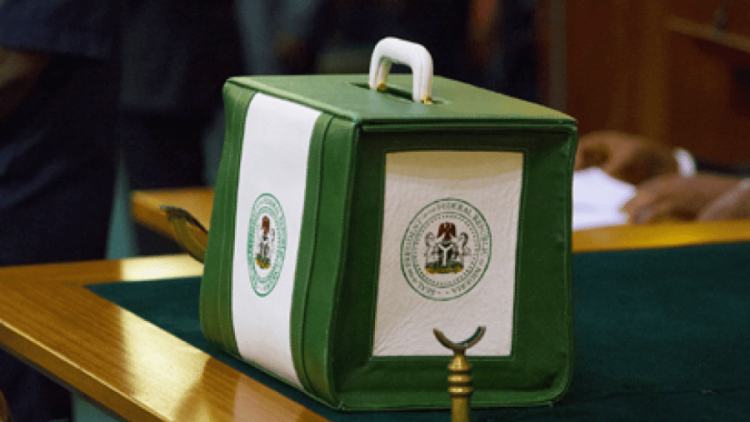Business, as a pathway to wealth, has its highs and lows. Among the lows is funding. JANET OGUNDEPO, in this feature, presents the many faces of small business funding
Dreaming of having a business is sweet, but starting one is risky. The entrepreneur requires capital for the other two factors of production. Assets, employees, and even promotional services are at the mercy of fund availability.
There are lots of business ideas on paper and/or in the subconscious of many a Nigerian without the wherewithal to realise them. Funding is to a business what breath is to man.
Many start-ups and going concerns are battling with this challenge. Team Lead of a logistics company, Mr. Femi Lafua, says, “The challenge we face as a business is mainly funding. There are ideas you want to push out, but you need funding; there are new products you want to launch, you need funding to do that. It’s a major challenge. To even get the commitment of your workers, you need money to pay their salaries. Small businesses like ours don’t have that luxury of cash to move around, test new markets, do research and development.”
Sourcing equity
Fund is to business growth what water is to life. Therefore, having a dependable access to funds goes a long way in increasing the productivity and lifespan of a business. Crowd funding, grants and loans are other means to obtain money to start and/or grow a business, aside personal savings.
In Nigeria, many Small and Medium-sized Enterprises depend on loans from microfinance banks, friends and families to start or grow their businesses; they do not rely on grants or loans from the government. However, those who detest taking loans save up to expand their businesses.
Mrs. Blessing Chikwe, who runs a bookshop in Lagos, said, “I save up when I want to expand my business because I don’t like to collect loans from family and friends or microfinance banks.”
Business funding across cultures
In Nigeria, the Igbo apprenticeship system, which mystery economic experts are yet to unravel, has been described as the best business framework in the world. It is common among the Igbo for boys to serve an established entrepreneur for an agreed number of years, after which the boss would empower him with fund to start his own business.
Mrs. Blessing Godwin, a cloth trader, confirmed this. According to her, among the Igbo, the boss sets up businesses for their apprentices after some years of service. She added that spouses could also set up businesses for their partners.
“If the husband is capable, he establishes the wife in a business; and if the wife is the one with the funds, she establishes the husband,” she said.
Chigozie Ezenwa, a furniture business apprentice, added that it was not mandatory for the boss to provide everything for his apprentice after the years of stewardship.
“Not everything is provided for an apprentice, who is through with his apprenticeship. Sometimes, it depends on how he (the boss) ‘settles’ you. He may give you money to start your own business or give you money and a shop. Some bosses will give you some goods and shop and some money,” he said.
Chinweuba and Chukwudi (2017) citing Obunike (2016) in their journal on the foundation of Igbo entrepreneurship, emphasised that the system of business among the Igbo is the apprenticeship strategy.
“The Igbo entrepreneur hardly waits for government funds to venture into the business of their choice. ‘Igba-odibo’ (traditional business school) has remained a source of livelihood and a means of employment that incubates entrepreneurs to stand on their own, raise capital for business, and actively engage in economically worthwhile ventures,” they wrote.
Unlike the Igbo, in Togo, taking loans is popular for their business of crops and farming. Joshua Anani says, “In Togo, obtaining loans is the way to get funds to start a business.” When asked of government intervention schemes for SMEs, he said, “There are lots of it.”
But it is popular among Yoruba women to have their husbands or other family members to establish them in a business. Mr. Folorunsho Abiodun, the Supervisor for Grooming Centre Microfinance Bank, Lagos, said, “Of all the tribes (in Nigeria), the Yoruba are the ones that apply for loans most. This is because the people we give loans are civil servants, and the Yoruba are more in the civil service in Lagos. Most of them collect these loans to pay school fees and house rent. The percentage of those that collect loans for business is not many.”
It is pertinent to say that tribal beliefs and cultures also impact on the way business is done.
Grants and loans
Government’s interventions in SMEs with various grant schemes seem not to reach the grassroots, as many traders said they never heard about it.
A poll on Tradermoni around a market in Mushin part of Lagos proved that majority of the traders have not heard about the scheme. Of the 17 respondents, only four agreed to have heard of it. Of the four that heard, only one is a beneficiary.
Realising this, the government said through Vice President Yemi Osinbajo, “We must find ways of expanding the scope of the scheme (Artisan and Transport Scheme), because the numbers we have approval for are small in comparison to the enormity of the problems we are faced with.
“Even if we are able to reach two million beneficiaries, it is still a tiny percentage of the millions who require assistance. We have to find ways of getting approval to expand the scope of the scheme.”
Many are not interested in getting these funds because they do not believe they will get it or see the process as rare a privilege.
Mrs Godwin said, “I have not heard of Tradermoni and do not believe in the fund government gives because after pursuing it, one might come back with sadness; you may not get it.”
However, Lafua, a beneficiary of the Federal Government’s SMEs Survival Fund, advised, “Usually, when you are applying for grants, there is a 50:50 chance that you will get selected; it is not certain that you will get it, especially when it comes from the government because thousands of people applied too. Majority of them are even more qualified than you; so you just have to be hopeful that you will be selected.”
In another twist, there has not been record of any of the beneficiaries repaying the loan. Some who have collected see the money as their own slice of the national cake; hence no need to payback.
Financial Street gathered that some traders even part with about N2,000 bribe to get the N10,000 Tradermoni.
Last line
In the final analysis, every business requires fund to survive. However, fund for business does not follow the same route. So, whichever way your funding comes from, the most important thing is that you make judicious use of it, and, where applicable, repay as and when due.












